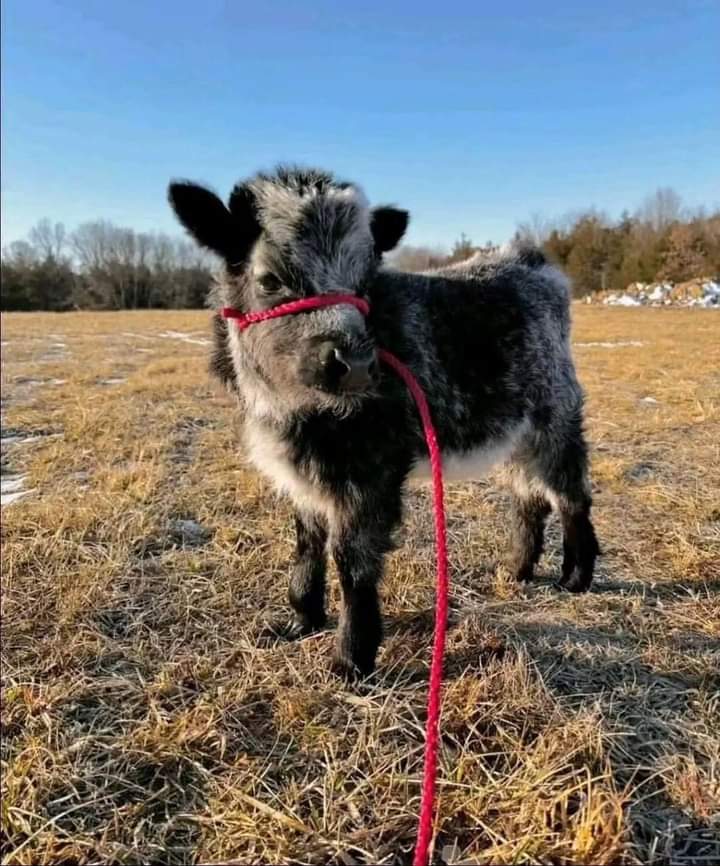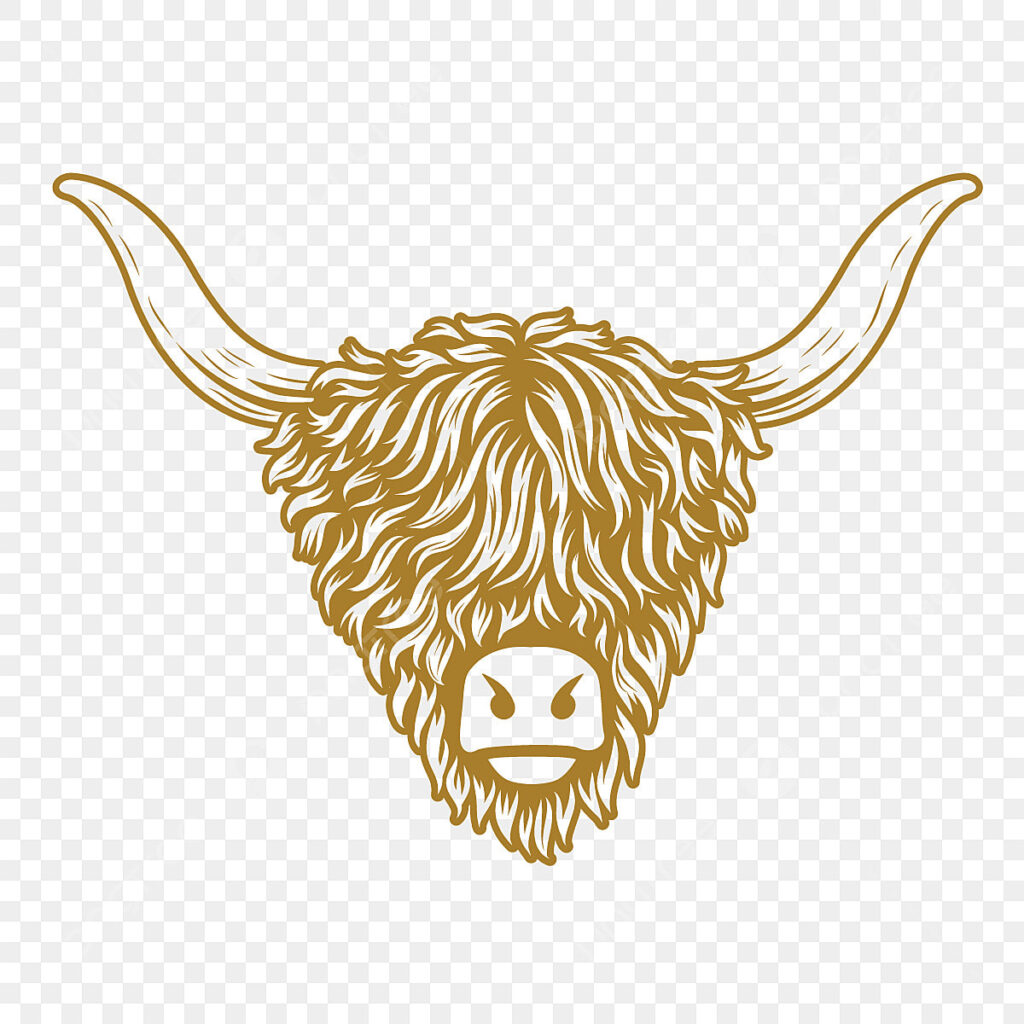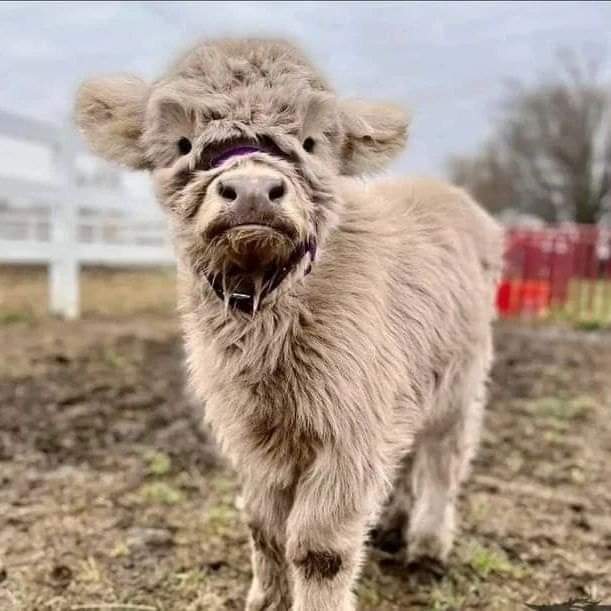Mini Highland cows are rapidly gaining popularity among small-scale farmers and hobbyists for their manageable size, gentle temperament, and unique beauty. But owning a mini Highland cow on a small property does come with its challenges. If you’re thinking of adding one of these adorable, shaggy creatures to your homestead, it’s essential to know how to properly care for them in a small space.
In this guide, we’ll explore the best practices for housing mini Highland cows on small properties, from setting up the perfect pasture to maintaining a healthy diet. Whether you’re considering buying a mini Highland cow for sale or already own one, these tips will help ensure their comfort and well-being.
What Are Mini Highland Cows?
Mini Highland cows are a smaller version of the classic Highland breed, known for their long, wavy coats and distinctive horns. These cows are bred specifically for people who want the charm of the Highland breed but don’t have large properties. Typically, they stand at around 36–42 inches tall and weigh between 500–800 pounds, making them far more manageable than full-sized Highland cattle.
When you search for “mini Highland cows for sale,” you’ll likely find breeders offering them in various colors, with the traditional red being the most common. Their small size and docile nature make them ideal for smaller farms, backyards, or even hobby farms.
Choosing the Right Space for Your Mini Highland Cow
While mini Highland cows are smaller than their full-sized counterparts, they still require plenty of space to roam, graze, and feel comfortable. If you’re housing mini Highland cows on small properties, understanding their space needs is crucial for their well-being.
Minimum Space Requirements for Mini Highland Cows
Despite being smaller, mini Highland cows are still livestock that needs adequate space to thrive. Ideally, you should allocate at least 1 to 1.5 acres of land per cow. If you’re considering multiple mini Highland cows, you’ll need more space. Although they’re smaller, their grazing needs don’t decrease significantly compared to larger cows.
In addition to grazing land, you should have a secure, dry shelter for protection against extreme weather conditions, especially during the colder months. Their thick coats keep them warm, but they need a dry, draft-free shelter to avoid getting sick.
Fencing for Mini Highland Cows
When raising mini Highland cows on small properties, it’s essential to have a sturdy fence. Mini Highland cows can be surprisingly strong, and if the fence isn’t tall enough or strong enough, they might push through it. Ideally, you should use a 4–5-foot-high fence made from wood, woven wire, or electric fencing. Make sure the fence is buried a few inches below the ground to prevent them from pushing under it.
Creating a Comfortable Environment for Your Mini Highland Cow
In addition to a large grazing area, creating a comfortable environment for your mini Highland cow involves several factors, including food, water, and shelter.
Shelter: A Safe and Dry Spot
Even though mini Highland cows have a thick coat that keeps them warm, they still need a safe place to retreat during extreme weather. A simple three-sided shelter will work, but make sure it’s big enough for your cow to move around comfortably. This shelter will provide protection from wind, rain, and extreme cold.
In warmer climates, it’s especially important to ensure your cow has access to shaded areas to avoid heat stress. Make sure the shelter has proper ventilation to keep the air flowing and cool in the summer months.
Feeding Mini Highland Cows
Mini Highland cows are hardy grazers, but their small size means they have different dietary needs than full-sized cows. Their main diet should consist of high-quality pasture grass and hay. If you have a small property, it’s important to monitor your grazing area and rotate pastures to avoid overgrazing. Overgrazing can deplete the land and leave your cow without enough nutrients.
You can also supplement their diet with mineral blocks, salt, or even small amounts of grains, especially if you’re keeping them on a property where the grass may not be as plentiful. However, always consult with a veterinarian before introducing new foods to ensure they don’t have any digestive issues.
Health and Veterinary Care for Mini Highland Cows
Mini Highland cows are generally robust animals, but like any livestock, they need regular health care and monitoring.
Regular Check-ups
Even though Highland cows are hardy, they should still receive regular check-ups from a vet. Your cow may need annual vaccinations, parasite control, and hoof care. Check their hooves frequently for any signs of wear or injury. While Highland cows are usually quite docile, it’s best to get them accustomed to regular handling from a young age to make these tasks easier.
Dealing with Cold Weather
Highland cows are well-suited for colder climates thanks to their long, thick coats. However, during extreme cold, make sure they have access to fresh water that isn’t frozen. While they are naturally adapted to cold, they should still be provided with shelter that keeps them out of the wind and wet conditions.
In warmer months, be mindful of their heat tolerance. While their thick coat protects them in winter, it can cause them to overheat in hot weather. Providing them with plenty of shade and fresh water is essential.
Mini Highland Cows for Sale: Where to Find Them
If you’re considering buying a mini Highland cow for sale, there are many breeders across the country offering these charming animals. When purchasing a Highland cow, it’s important to ensure you’re buying from a reputable breeder. Look for breeders who are transparent about their breeding practices and offer healthy, well-socialized animals.
Be sure to ask about the cow’s health history, including vaccinations, deworming, and any other relevant health information. If possible, visit the farm before purchasing to ensure the cows are living in a clean and well-maintained environment.
Socialization and Care for Highland Cows
Highland cows are social creatures and should not be kept alone for long periods of time. If you’re keeping a single cow, it’s essential to spend time with it daily. Consider getting another mini Highland cow or another compatible farm animal for companionship. Cows that are kept alone can become lonely and stressed, which can negatively impact their health.
Additionally, providing mental stimulation is important. Allow your cow to engage in natural behaviors such as foraging, grooming, and exploring the pasture. These activities are vital for their overall well-being.
Benefits of Owning Mini Highland Cows on Small Properties
Highland cows are a great fit for small properties due to their manageable size and docile temperament. They can provide fresh milk, meat, and even wool (if sheared). Many owners also keep them for ornamental purposes, as their shaggy coats and sweet demeanor make them a favorite among visitors and neighbors.
Low Maintenance
Compared to larger breeds, mini Highland cows are relatively low maintenance. They don’t require expensive equipment, and their grazing habits are efficient, meaning they can help keep your pasture in check. Furthermore, they are less prone to common cattle diseases, making them a relatively easy breed to manage.
Environmentally Friendly
Raising mini Highland cows on small properties can be an environmentally friendly option. Their grazing habits help maintain the health of the land, and their smaller size means they produce less manure than larger cows, making waste management easier.
Frequently Asked Questions About Highland Cows
How much space do Highland cows need?
Mini Highland cows need at least 1 to 1.5 acres per cow, with additional space required for multiple cows. They need plenty of room to roam, graze, and exercise.
Can Highland cows be kept in small backyards?
Yes, mini Highland cows can be kept on small properties, but they still require a good amount of space, shelter, and a secure fence. A small backyard might work for a single cow if managed properly.
What do Highland cows eat?
Mini Highland cows primarily eat pasture grass, hay, and sometimes supplemental grains or minerals. Their diet should be rich in fiber and nutrients, and you should rotate pastures to ensure fresh grazing areas.
Are Highland cows easy to care for?
Mini Highland cows are relatively low maintenance compared to larger breeds, but they still need regular check-ups, proper feeding, and sufficient space. They are hardy and adaptable animals.
Do Highland cows need a companion?
Yes, mini Highland cows are social animals and thrive when they have companionship. It’s best to keep them in pairs or with other animals to prevent loneliness and stress.
Where can I find Highland cows for sale?
Mini Highland cows for sale can be found through reputable breeders, both online and at local farms. Be sure to research breeders and visit their facilities before making a purchase.
Conclusion
Housing mini Highland cows on small properties can be a rewarding experience, but it does require careful planning and attention. By providing them with enough space, proper shelter, a balanced diet, and regular veterinary care, you can ensure that your mini Highland cow thrives on your property. Whether you’re purchasing a mini Highland cow for sale or already have one, these best practices will help you maintain a healthy, happy environment for your beloved animals.


